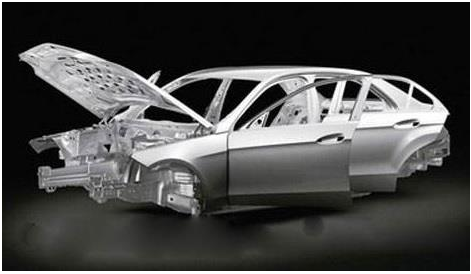In a world where weight reduction and fuel efficiency are key factors, magnesium casting has emerged as a game-changing solution. Magnesium is a lightweight metal with excellent mechanical properties, and it has become a popular choice for various applications, including automotive, aerospace, and electronics industries.
Magnesium casting is a manufacturing process that involves pouring molten magnesium into a mold to form a desired shape. The process is similar to other casting methods, such as aluminum casting, but the properties of magnesium make it a superior option in many cases. Magnesium has a density of 1.74 g/cm³, which is about 30% less than aluminum and 75% less than steel. This makes it an ideal material for reducing weight without sacrificing strength or durability.
One of the most significant advantages of magnesium casting is its exceptional strength-to-weight ratio. Magnesium alloys have a high strength-to-weight ratio, which means that they can withstand high loads and stresses while remaining lightweight. This property is particularly useful in the automotive industry, where reducing weight is a critical factor in improving fuel efficiency. A reduction in weight of 10% can lead to a 6-8% reduction in fuel consumption, making magnesium casting an attractive alternative to traditional materials.
In addition to its superior strength-to-weight ratio, magnesium casting also offers excellent dimensional stability and corrosion resistance. Magnesium alloys have low thermal expansion coefficients, which means that they maintain their shape and size at high temperatures, making them suitable for applications that require high-temperature resistance. Magnesium alloys also have excellent corrosion resistance, making them ideal for use in harsh environments.
Magnesium casting has found wide-ranging applications in various industries. In the automotive industry, magnesium casting is used to manufacture components such as engine blocks, transmission cases, and suspension parts. The aerospace industry also uses magnesium casting in the production of aircraft components, including engine components, airframe parts, and landing gear. In the electronics industry, magnesium casting is used to manufacture components such as laptop frames, phone housings, and camera bodies.
Despite the many advantages of magnesium casting, there are also some challenges that must be addressed. One of the challenges is the cost of magnesium. Magnesium is more expensive than other materials, such as aluminum and steel, which can make it less attractive for some applications. Additionally, magnesium is highly flammable and can combust when exposed to high temperatures or sparks, making it a potential safety hazard during the manufacturing process.

To overcome these challenges, researchers are exploring new methods to reduce the cost of magnesium and to improve safety during the manufacturing process. New technologies, such as high-pressure die casting and thixomolding, are being developed to make magnesium casting more cost-effective and efficient. Additionally, new alloys are being created to improve the strength, ductility, and corrosion resistance of magnesium casting.
In conclusion, magnesium casting has emerged as a lightweight and high-performance solution for various industries. Its excellent strength-to-weight ratio, dimensional stability, and corrosion resistance make it an attractive alternative to traditional materials. While there are some challenges that must be addressed, ongoing research and development are expected to make magnesium casting even more cost-effective and efficient in the future.

 0086-750-5616188
0086-750-5616188 +86 13392089688
+86 13392089688 sales@zhongmei-tech.com
sales@zhongmei-tech.com













